Resources, Log Management
6 min read
Last updated:
Loggly is a feature-rich log management platform that also offers a wealth of features including automated log summaries, custom derived fields, unlimited users, search & filters and email alerts. Loggly is often used to solve a variety of logging use cases including handling Meteor, Java, Apache, Docker and IIS logs.
Unfortunately, as Loggly's parent company SolarWinds was at the centre of one of the biggest US cybersecurity breaches in history (the Solorigate incident gave hackers access to over 100 private-sector companies), many users wish to consider what alternative solutions are available for truly secure and compliant log management.
In this guide, we are looking at how the largest competitors to Loggly rank across a number of key factors, including average rating, key features and last but not least, pricing.
Contents
1. Logit.io
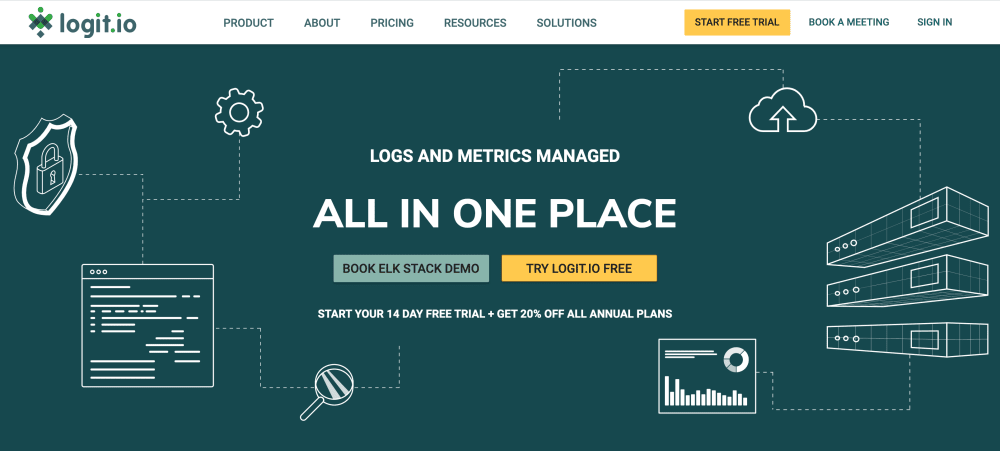 The Logit.io platform provides a highly secure, compliant and competitively priced alternative to Loggly. The platform offers complete management for logs, metrics and traces alongside its CMMC audit log compliance offering. The Logit.io platform itself also operates in compliance with SOC2, HIPAA, PCI & is ISO27001 certified.
The Logit.io platform provides a highly secure, compliant and competitively priced alternative to Loggly. The platform offers complete management for logs, metrics and traces alongside its CMMC audit log compliance offering. The Logit.io platform itself also operates in compliance with SOC2, HIPAA, PCI & is ISO27001 certified.
Compared to Loggly, Logit.io is currently rated 5 out of 5 stars on Capterra compared to Loggly’s 4.3 score.
Key Features:
- Unlimited users
- Unlimited querying
- Over usage protection
- Easy to understand billing
- Fully managed upgrade paths
- Enterprise uptime SLAs available to 99.999%
- Single Sign-On (SSO) using LDAP, AD or SAML
- Highly available data centres in EU, UK and US regions
- Open cloud metrics including Open Telemetry, APM, Prometheus, Grafana
- Pre-configured and fully customisable Logstash pipelines to enrich your data
- Expert Elasticsearch support engineers, live chat and help centre knowledgebase
- Open cloud logging platform including hosted Elasticsearch, Logstash and Kibana
Request a Demo
Want to learn more about Logit.io's powerful observability platform? Book a demo and we'll walk you through the extensive capabilities and discuss your requirements in detail.
2. Sumo Logic
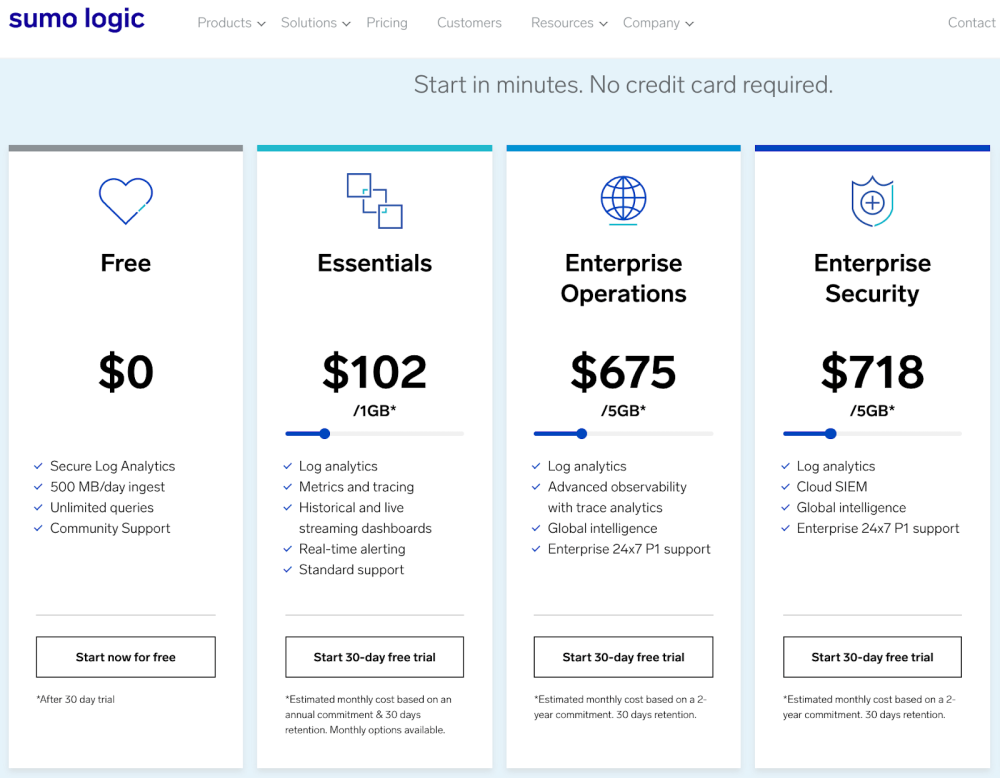 Sumo Logic offers a unified platform for analysing both metrics and logs. This 2010 established solution is backed by a strong query language as well as support for scheduling queries.
Sumo Logic offers a unified platform for analysing both metrics and logs. This 2010 established solution is backed by a strong query language as well as support for scheduling queries.
We’ve found based on feedback from real users comparing Loggly vs Sumo Logic that Sumo Logic offers in-person training whereas Loggly does not. In-person training can provide your engineers with a crash course on how to make the most of proprietary log management solutions, find out more about log management software consultancy.
Sumo Logic also wins out over Loggly for its wealth of available support options due to its ability to offer 24/7 live support.
Key Features:
- Incident management
- Automated response
- Advanced analytics
- 24x7 support
- Tracing
3. Splunk
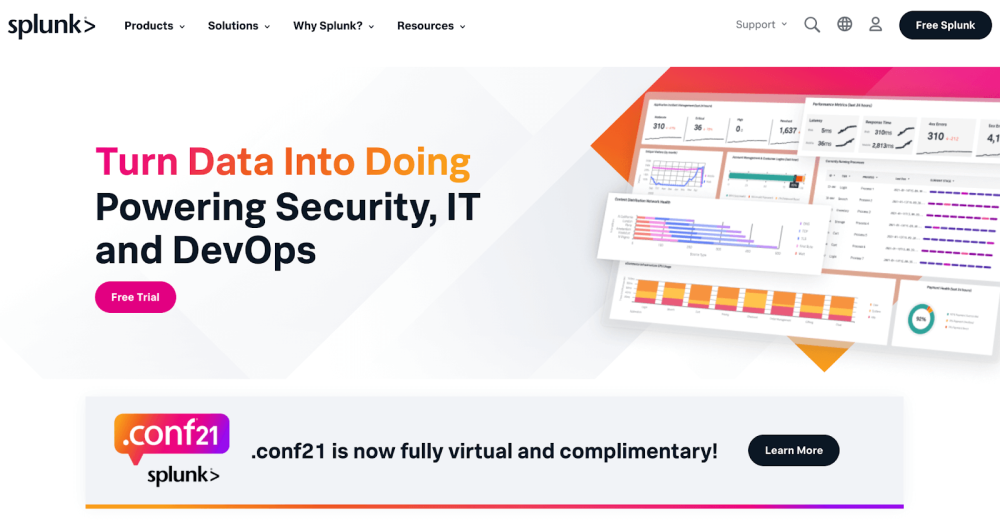 Splunk is the original proprietary “data to everything” platform that primarily offers SIEM solutions built for enterprise users. Their platform is well known among engineers for its use for large scale projects (for example, organisations that have to manage over 200,000 devices).
Splunk is the original proprietary “data to everything” platform that primarily offers SIEM solutions built for enterprise users. Their platform is well known among engineers for its use for large scale projects (for example, organisations that have to manage over 200,000 devices).
When comparing Loggly vs Splunk we discovered that Splunk is more feature-rich as unlike Loggly the latter platform is able to offer cost management, supply monitoring and workflow approval. Splunk users are also consistently more likely to recommend the platform over Loggly, at 83.5% likelihood against 60.0% (Source: Capterra: Feb 2022).
Key Features:
- Collect and index data
- Reporting & statistics
- Monitoring
- API
4. Logentries
Logentries is a Rapid7 owned platform for live log management and data analytics. New users of this solution can get started with a free 30-day trial, which is longer than trials from the large majority of other providers included within this article.
We found that based on previous data comparing Logentries vs Loggly that Logentries has broader approval than Loggly as the platform is cited by many more companies (Source: Stackshare, Feb 2022).
__Key Features: __
- Third-party exporting
- Log centralisation
- Insight drill down
- Inactivity alerting
5. Papertrail
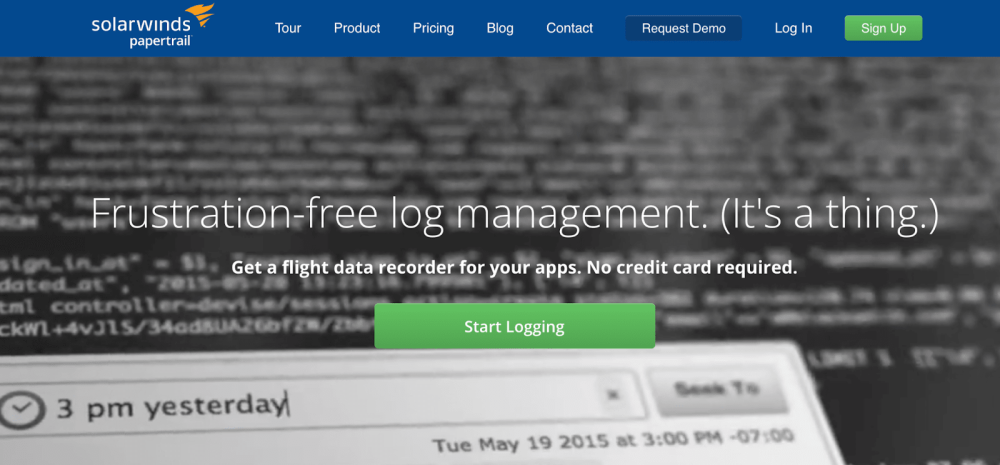 Papertrail is another Solar Winds backed solution provided by the very same creators of Loggly. Papertrail provides cloud-based log management for users who require comprehensive aggregation of their log data.
Papertrail is another Solar Winds backed solution provided by the very same creators of Loggly. Papertrail provides cloud-based log management for users who require comprehensive aggregation of their log data.
When comparing Papertrail vs Loggly we found that Papertrail is rated higher for both customer service support and value for money (Source: Capterra, Feb 2022). Papertrail users are also consistently more likely to recommend the platform over Loggly (90.9% against 60.0% respectively).
Key Features:
- Long-term archive to Amazon S3
- Automate backups
- Encrypted logging
- Search alerts
6. Datadog
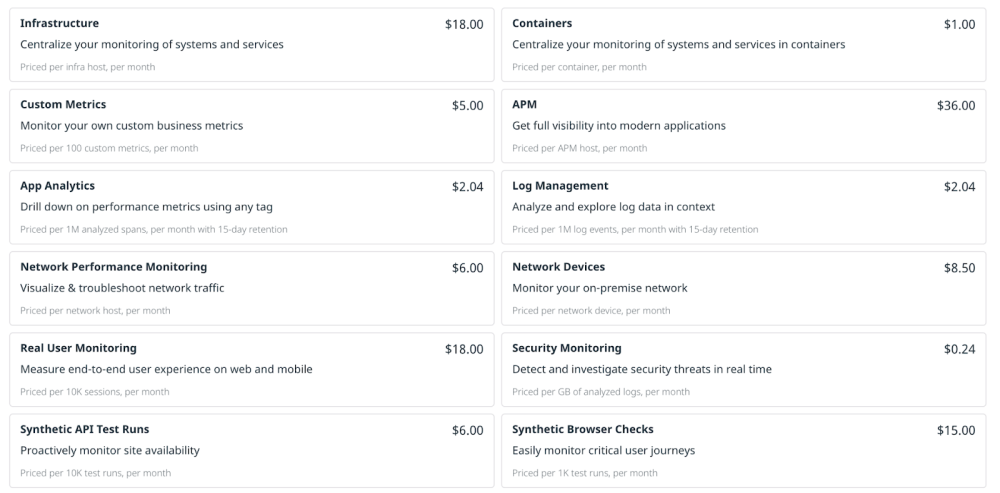 Datadog is a popular solution that is highly rated by users due to its wide range of features, high integrability and support of custom configurations and settings. One of the most commonly cited benefits of this solution is its ability to enable users to effectively decouple log ingestion from indexing for effective parsing and monitoring.
Datadog is a popular solution that is highly rated by users due to its wide range of features, high integrability and support of custom configurations and settings. One of the most commonly cited benefits of this solution is its ability to enable users to effectively decouple log ingestion from indexing for effective parsing and monitoring.
If we take a look at feedback from real users across a range of criteria comparing Datadog vs Loggly it is evident that Datadog has almost 10x as many reviews as Loggly indicating much higher popularity (Source: Capterra, Feb 2022).
Key Features:
- Host and container maps
- Forecast monitoring
- Anomaly detection
- Notebooks
- Alerting
7. Graylog
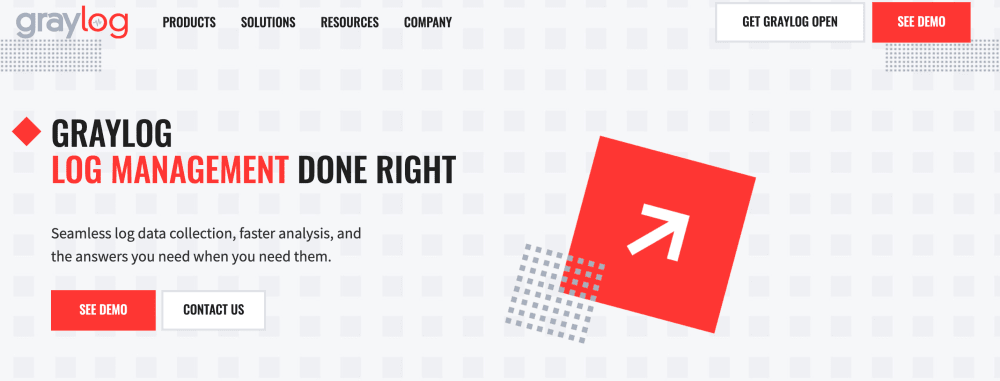 Graylog is known for being a well-established log management platform due to their organisation having existed for well over a decade. Graylog users have the choice to opt between two options, an open-source platform and their proprietary solution (with the latter being primed ready to launch for enterprise use cases).
Graylog is known for being a well-established log management platform due to their organisation having existed for well over a decade. Graylog users have the choice to opt between two options, an open-source platform and their proprietary solution (with the latter being primed ready to launch for enterprise use cases).
When looking at reviews making the comparison between Graylog vs Loggly it is clear to see that Graylog win out for having a broader range of features as well as being generally better value for money (Source: Capterra, Feb 2022).
Key Features:
- Distributed search workflow
- Configure complex alerts
- Query in minutes
- Fault tolerance
8. Logz.io
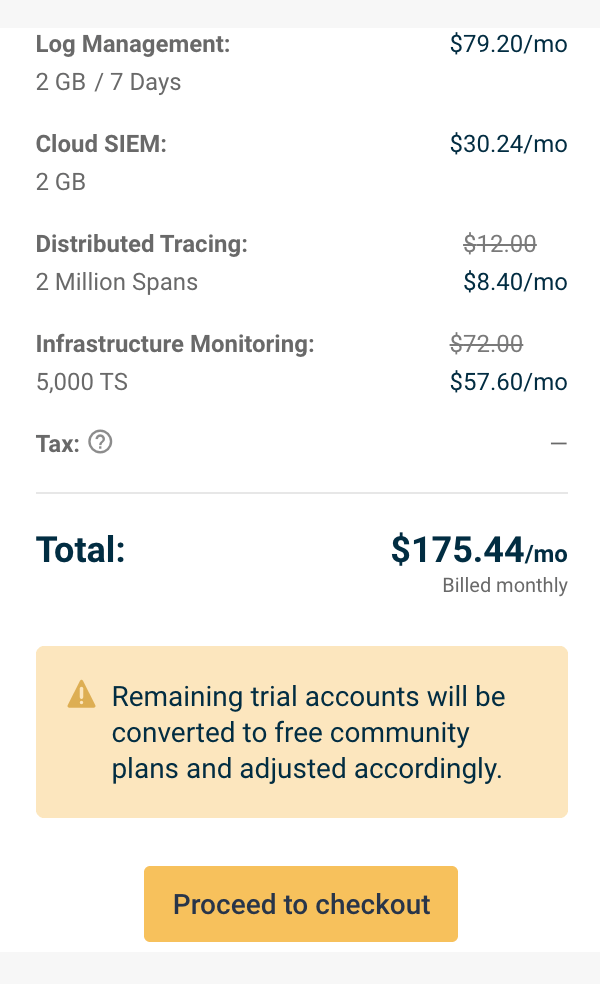 Logz.io is a logging solution that enables its users to monitor logs in order to improve their observability. The platform offers a selection of pre-built dashboards which provide examples to those that are new to the process of setting up Kibana and Grafana dashboards.
Logz.io is a logging solution that enables its users to monitor logs in order to improve their observability. The platform offers a selection of pre-built dashboards which provide examples to those that are new to the process of setting up Kibana and Grafana dashboards.
If we compare Loggly vs Logz.io based upon their strengths and reputation as log management tools we can see that the latter platform offers remediation management. Logz.io users are also more likely to recommend the platform over Loggly at 88.0% against Loggly's 60.0% (Source: Capterra, Feb 2022). Logz.io is also rated as stronger on both customer service response and value for money.
Key Features:
- Volume analysis & reporting
- Log and metrics correlation
- Cognitive insights
- Drop filters
- Audit trail
9. New Relic
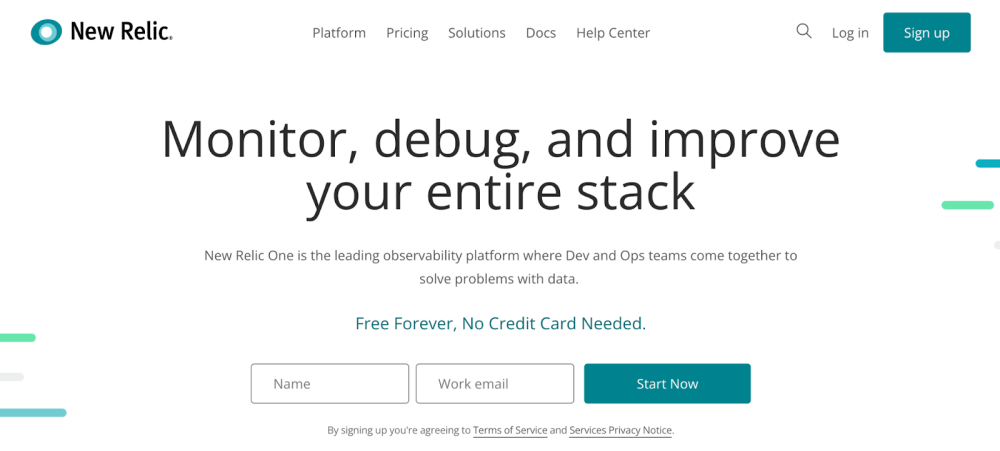 New Relic offers a log management system that is compatible with sending logs from the majority of leading cloud providers. As well as log management, their platform also offers distributed tracing, instant observability and synthetics monitoring.
New Relic offers a log management system that is compatible with sending logs from the majority of leading cloud providers. As well as log management, their platform also offers distributed tracing, instant observability and synthetics monitoring.
We noted that based on user feedback comparing Loggly vs New Relic that both of these solutions are rated equally on value for money, ease of use, customer support and overall feature set (Source: GetApp, Feb 2022).
Key Features:
- Advanced Kubernetes management
- Correlate metrics to applications
- Open data collection
- Synthetics checks
10. Logstash
Logstash was a formerly open-source logging solution created by Elastic that works as a powerful and flexible pipeline that collects, enriches and transports data. Logstash works primarily as an extract, transform & load (ETL) tool for the collection of logs and forwarding this data into Elasticsearch prior to its visualisation within Kibana.
When comparing Loggly vs Logstash for relative popularity we can see that Logstash is used by more companies across the globe at 551 versus Loggly's inclusion in under a hundred company Stacks (Source: Stackshare, Feb 2022).
As Logstash can be tricky to host, scale and maintain on your own machine, it is worth considering how you plan to implement this solution in line with the growth of your organisation’s operations.
Fortunately, the benefits of Logstash can be used by organisation’s looking to implement a managed service. Hosted Logstash provides all of the benefits of Logstash as well as additional compliance, security and advanced role-based access controls.
If you enjoyed this article then why not take a look at our in-depth guide on logging tools or our guide on mitigating the Log4j2 vulnerability?
